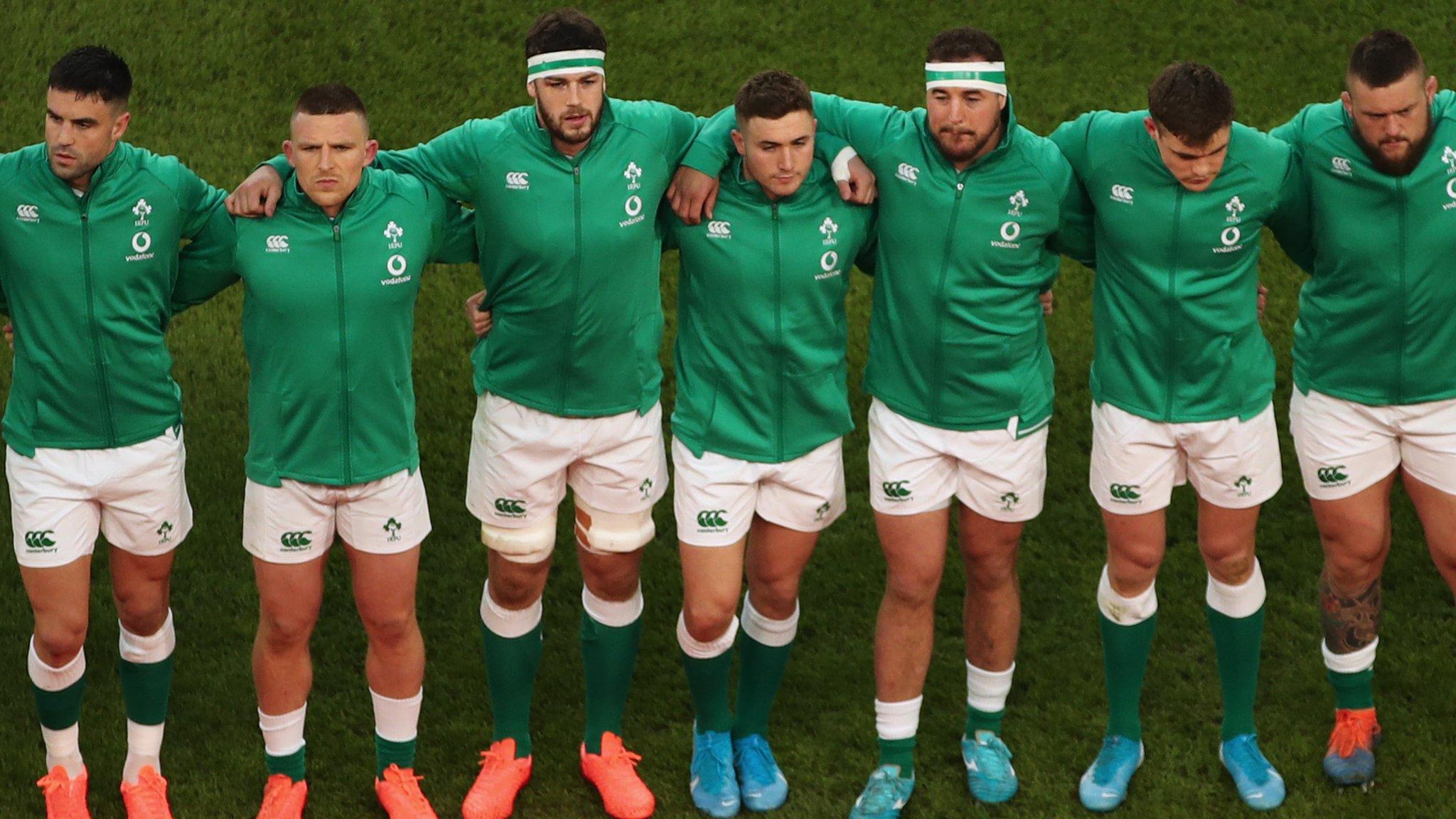Rory Best: 'Only now' are long-term effects of rugby being seen
- Published
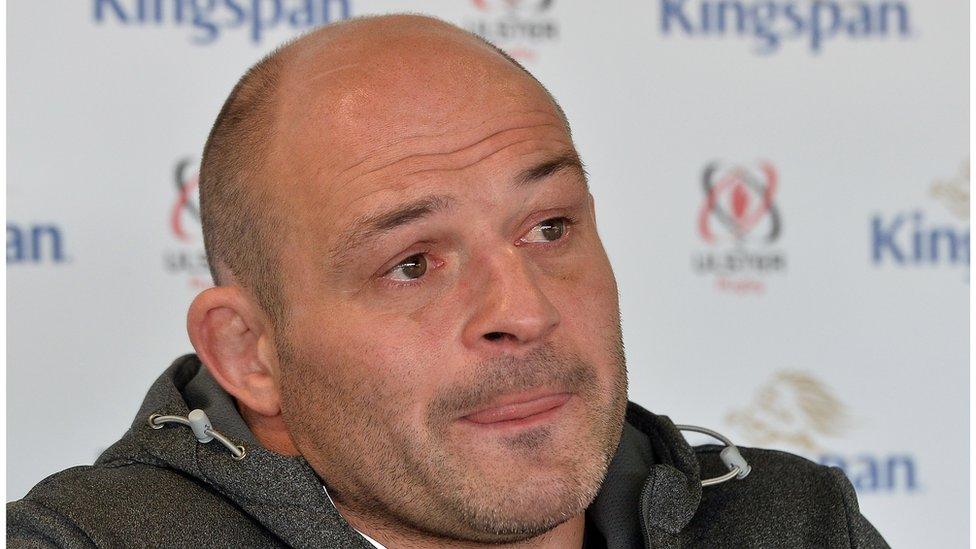
Rory Best is Ireland's third most-capped player
Rory Best has said it is "only now" the effects of high intensity rugby are being seen on players' physical health.
The former Ulster and Ireland rugby captain was speaking to BBC Radio Ulster's Talkback programme.
It comes as a case is being taken by a group, including Rugby World Cup winner Steve Thompson, who claim the sport left them with permanent brain damage.
Best, from Poyntzpass, County Armagh, retired from the sport last year.
He told the BBC that, physically, the game had changed since he started.
The father of three said that from about 2013, "you could really feel the physicality ramping up".
"The likes of Steve Thompson coming through and speaking up, you will see more saying that actually a life of professional rugby has not been good for the body," he told the programme.
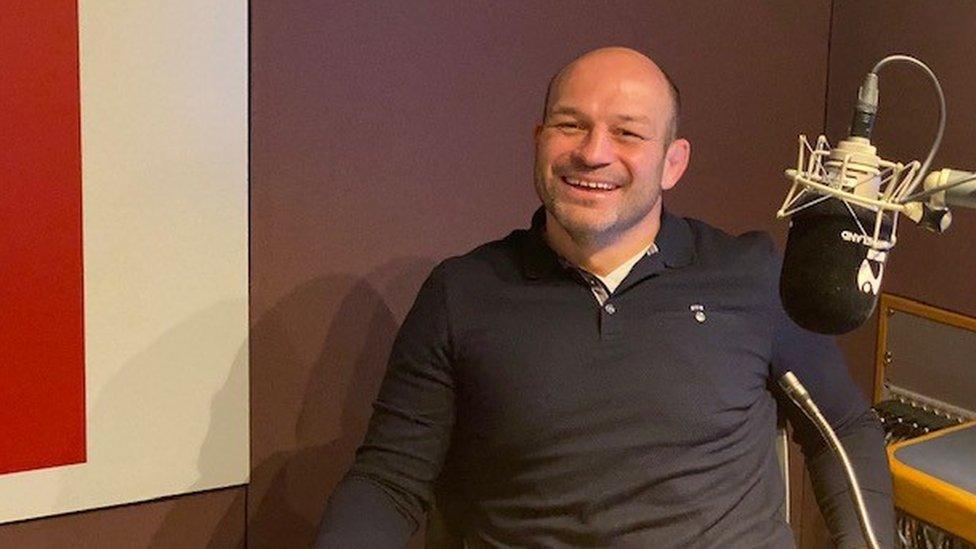
Rory Best appeared in Talkback special for BBC Radio Ulster
'Bodies have been taking a battering'
"You look back now and you wonder if you didn't think about those things because you were in your 20s and you just think about day to day, or was it just because the impact back then wasn't as big, or you didn't think it was as big?"
However, he added that "when you get into your 30s you start to think about your long-term future and health - it's hard to know which it is."
Rugby union became a professional sport in 1995 and, while still "in its infancy", Best says this has meant many players set their sights on playing at elite level from childhood.
"It's only now, in my generation, where you're seeing boys who from a very young age have been in an environment where it is intense and their bodies have been taking a battering and you'll see the knock-on effects," he said.
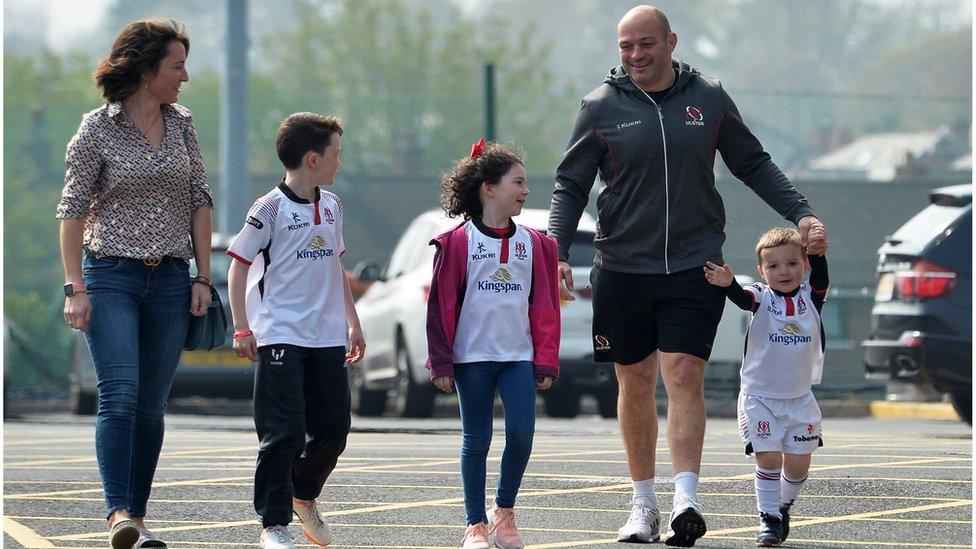
Rory Best says his family "sacrificed so much" to allow him to play rugby at the highest level
But he said that while the game had evolved in terms of physicality, it was positive that "the thinking of world rugby is improving in terms of safety being paramount".
He said this was not only important for those playing, but also in terms of encouraging young people to get into the game.
"If parents are worried, or don't think that the governing body is doing enough to protect their kids, they're not going to bring them and the game won't develop," he said
At 38, he said that ageing feels different for professional sports people.
"When you're playing in a team with 18 to 22 year olds, I can assure you that when you are 35 or 36 you feel very, very old," he said.
"What happens at the end is that you're a lot more aware of the need to recover and make smart decisions when you have days off or your weekends and it's about resting up."
He admits that as time goes on, it can feel like "more of a job".
"All the players you grew up playing with and were friends with, you get into your 30s and they all start, year on year, to retire.
"By the time I got to the end, my best friend within Ulster was probably Iain Henderson who doesn't seem like it, but he's 10 years younger than me."
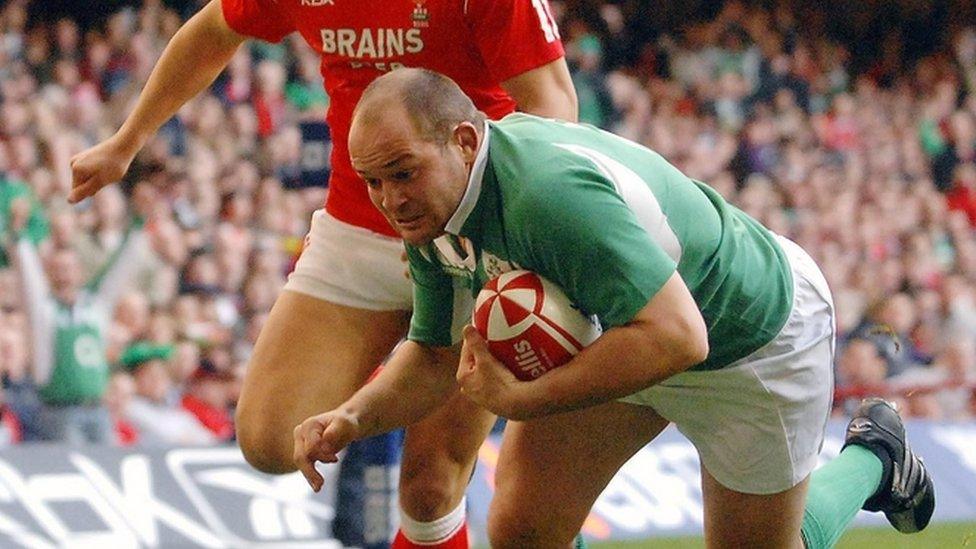
Best dives over to score a try against Wales during the 2007 RBS 6 Nations match in Cardiff
While a global pandemic has halted many of his rugby retirement plans, Best looks back on his final games - and the applause - fondly.
He said the reception he got leaving the pitch were as much for his family as they were for him.
"They sacrifice so much throughout your career to make sure you can do it," he said.
"Being from a farm in Poyntzpass, you don't ever think you're going to get people right around the world standing up to applaud you as you go off the pitch.
"I think that's probably why I was able to go on as long as I did - it was my upbringing. It was 'don't assume anything, work hard, don't look for any gratitude, just keep doing what feels right'."
Returning to Ulster Rugby?
So, what's next for the rugby legend? Well, he feels he owes a lot to Ulster.
"They've given me so much since I was 16 and played for Ulster Schools and I feel that I have something to give back," he said.
"I would love to keep helping Ulster move forward."
Related topics
- Attribution
- Published24 August 2020
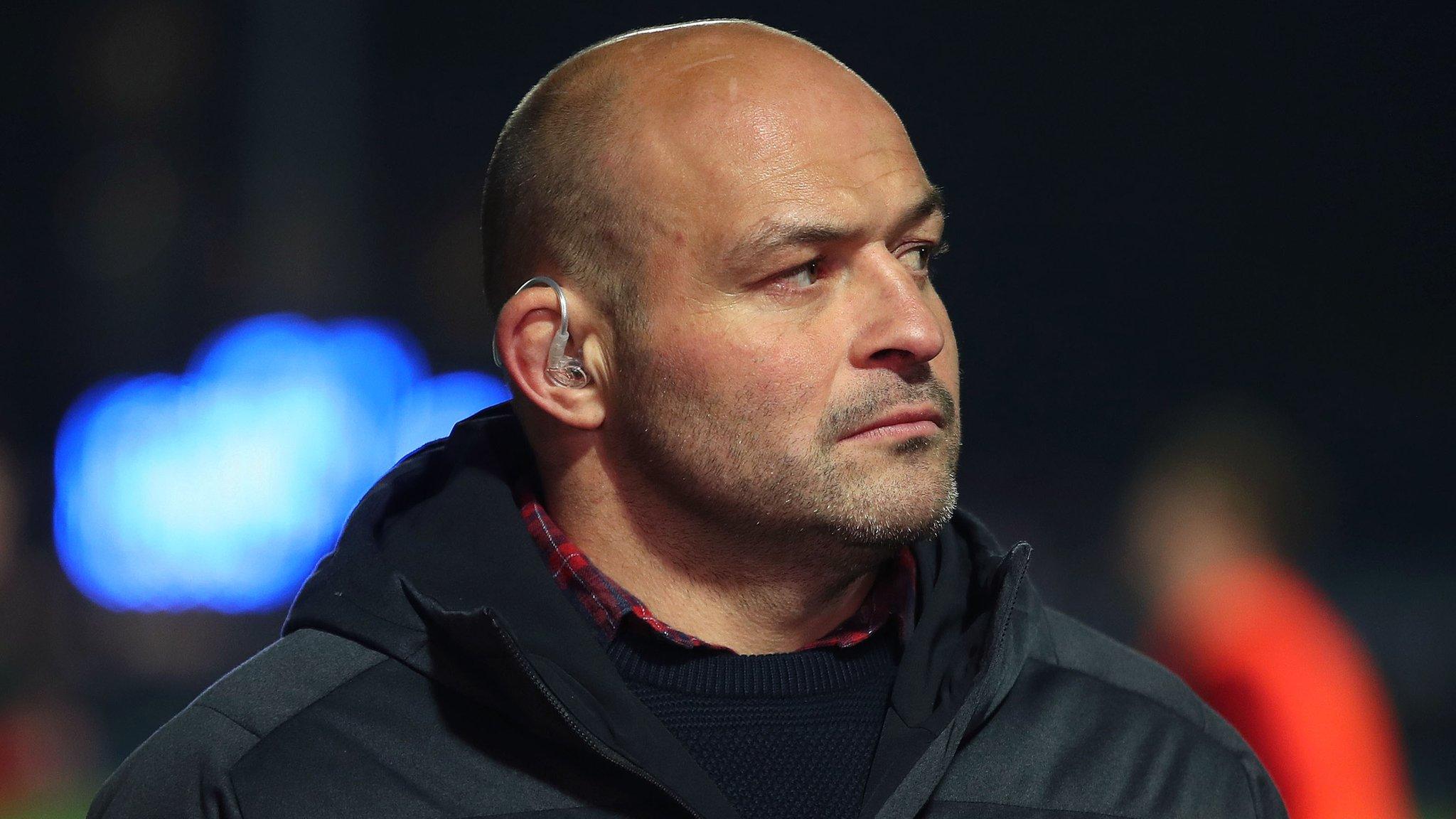
- Attribution
- Published14 December 2020
